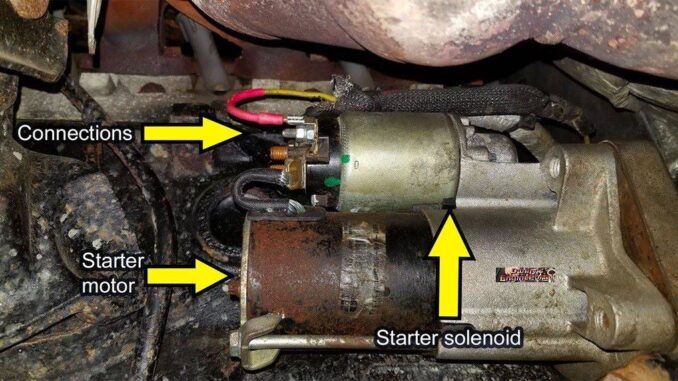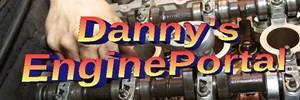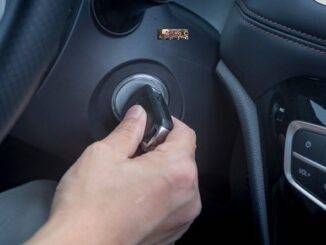
Issues with your car starter are actually very common, but drivers often confuse them, with other car troubles.
The first indication your car starter may be going bad, is when you try to start your engine.
The car starter has an important job, as it is what starts the engine. Because of this, it has to stand up to repeated use, under a variety of conditions.
But, the wear and tear of daily use, extreme conditions and poor maintenance, can all create car starter problems.
It seems like “stop start” technology, is the wave of the future. As a result, the strain on a car starter and batteries, has been greatly increased.
The demand for a modern car starter to be powerful, yet smaller for weight and fitment, presents a problem. As a result, car starters, are more likely to fail. So, a bad car starter, can look like other problems. But, there are ways to tell, if the car starter has gone bad.
The First Thing To Check, Is Always The Battery
If you turn the key and simply hear a clicking sound, or nothing, then it might be the battery. So, to eliminate that problem, always make sure you are starting off, with a fully charged battery.
The Basic Car Starter
The two main parts of the car starter are:
- The primary motor, that turns your crankshaft and starts your engine.
- The solenoid, that simultaneously engages the starter’s drive gear, and closes the main motor’s electrical contacts.
So, poor maintenance, can be one of the problems. However, even with decent maintenance, the different system components, get a lot of wear during their service life. Therefore, at some point, problems will pop up. It seems like “stop start” technology is the wave of the future. As a result, the strain on a car starter and batteries, has been greatly increased.
It All Starts With, What You Hear
Funny sounds, or no sound, upon turn of the key or pressing the button, may indicate electrical problems.
Corroded electrical connections, an undercharged or bad battery, a malfunctioning component, are some of the most common electrical problems:
- A Bad neutral safety switch. (automatic transmission)
- A Bad clutch safety switch. (manual transmission)
- Starter relay going bad.
- Starter solenoid going bad.
- Corroded electrical connections, in the starting circuit.
- Worn-out part in the car starter, or some other system component.
Failure Warning Signs:
Do You hear Grinding Noises
A worn out starter drive gear not engaging properly, will often produce a grinding noise. If you accidentally try to start your engine, while it is already running, it would make a similar noise.
And, if left long enough the result would be, damage to the flywheel ring gear.
Freewheeling Or Whining Noise
Freewheeling occurs when you crank the engine and simply hear, a whining noise without the engine cranking. When this occurs it means, the starter is not engaging with the flywheel. This is a worrying situation which could result in, having to replace the whole component. If this happens, service your vehicle as soon as possible.
Intermittent Issues Starting The Engine
If you try to start your engine, but the engine doesn’t spin. Then you try once again and it works, this is most likely due to a problem with the relay. The starter relay, is an all or nothing device. Meaning that it either sends the full electrical current, or it sends nothing to the starter. Sometimes, a damaged relay, can cause the starter to make a clicking sound when you turn the key.
Starter Stays On After Engine Has Started
When you start the engine and release the key, the solenoid closes the circuit. The car starter now has, no power going to it. But, if the power stays on, after the engine has started. Then, the main contacts in the solenoid, have most likely welded together, in the closed position. This will ultimately cause serious damage to the whole starter system, and the transmission flywheel.
Smoke Or Burning Smell
If the power draw on the electrical system is too high, you may see smoke. This is either because the starter has been operated too long, or there is a connection problem. Smoke coming from underneath the engine, accompanied by a burning smell, can be a symptom of serious problems.
Batteries
It may appear that you have power to your starting system. And, you have lights on your dashboard and your headlights are working. But, the engine will not turn over.
If your engine does not crank, try to start it with jump leads or a starter pack. At least this will indicate if a weak battery, is the cause of your problems. Because, 9 out of 10 cars with starting problems during winter months, are battery related.
Oil Or Fluid Leaks
Your starter system lives near the bottom of the engine, in a very hostile environment. It’s very hot, and engine fluids can leak into your car starter and other related components. If your starter is operating under these conditions, its days may be numbered.
Poor Wiring Connection
Your trigger wire, or other wires in the system, may have come loose. If this is the issue, then it should be an easy fix. In the best case scenario, it could just be a simple matter of fiddling with a few connections. But, it could also potentially involve rewiring the entire system.
Defective Ignition Switch
So, car starter failure and ignition switch failure, present quite similar symptoms. There is a key check, that can tell you the difference between the two. First, see if the oil, brake and charge light come one, at position two.
If the lights fail to turn on, this could be a sign of electrical issues, in the ignition switch.
Conclusion
So, if you have done your testing and you are still not sure about the starter, have it tested. Most auto stores, will test your starter for free. Then, at the very least, you could rule out, any problems with the starter. Finally, lack of proper battery maintenance, faulty electrical connections and components, can all prevent your car from starting.
BY DANNY BENDER




